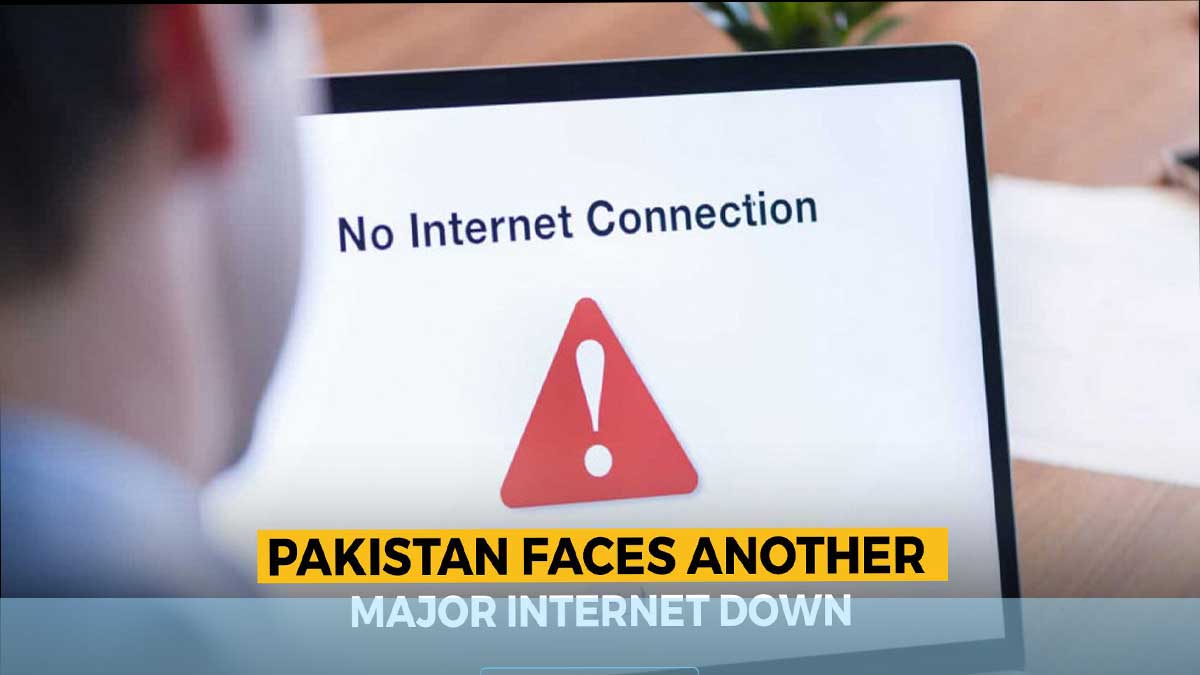Technology
Minister gets criticised for giving a “weird” reason for the internet problem in Pakistan
Published
4 months agoon
By
Jamshed Khan
People are fed up and the Minister gets criticised for giving a “weird” reason for the internet problem in Pakistan. A lot of companies, IT experts, and people who support digital rights are upset with the government’s attempt to say that recent problems with the internet were caused by more people using Virtual Private Networks (VPNs).
Shaza Fatima Khawaja, the State Minister for Information Technology and Telecommunications, gave a statement that has many people confused and has raised more questions than it has answered.
At a recent press conference, the minister said that the rise in VPN use had put too much stress on the country’s internet infrastructure, which had caused it to slow down a lot. But this explanation didn’t work, and many people weren’t satisfied.
At a news conference for Internet problem in Pakistan, Shaza Fatima stressed that the government is dedicated to enhancing the country’s IT infrastructure and luring more investors into the area.
The minister also said that the National Digitalization Commission would be set up and that IT parks would be built in Islamabad and Karachi.
Shaza Fatima also talked about how the government is working with tech giants like Google and Meta to give kids certificates. She also talked about how the Bridge Start Program, which has a budget of 1 billion to support new projects, was launched.
In response to public worries about the Internet problem in Pakistan, Shaza Fatima said that she understood how frustrating it is when the internet goes down and that steps are being taken to stop this from happening again.
She said that the rise in VPN use put more stress on Internet problem in Pakistan, which caused slow internet.
Internet problem in Pakistan
As a strong voice for digital rights, Farieha Aziz said, “The minister should first explain what has caused this sudden rise in VPN use if not their ban on X and more recently the WhatsApp disruption that made it impossible to transfer or download media on data.”
The expert also said that Meta, the company that owns WhatsApp, had already said that there was no problem on their end and that it was a problem in the area. Farieha asked, “So, what is causing this?”
“We will see how this claim stands in the days to come” When X was blocked, Farieha said, the information minister said there was no problem and X was running fine. There was then a technical glitch or problem on X’s end.
She said that later, a message blocking X had shown up. “So it is likely once all is done there may be acknowledgement but the government obviously does not believe in disclosure or transparency and they continue to mislead and lie publicly,” said Farieha.
Lahore Chamber of Commerce and Industry
The Pakistan Software Houses Association also asked the President of the Lahore Chamber of Commerce and Industry (LCCI), Kashif Anwar, to talk about the ongoing internet problems and how they are hurting the IT sector. They said the damage was already done and warned of a worsening crisis if something isn’t done right away to address IT sector concerns.
“Frequent internet outages, slow speed and high cost are crippling our economy and hindering our ability to compete in the global market,” said the LCCI head.
Shahzad Arshad, who is in charge of the Wireless and Internet Service Providers Association of Pakistan, told AFP that “a lot of businesses will leave Pakistan” if things keep going like this.
He also said that over the last month, connections had slowed down by 40%.
IT and Digital Marketing
When IT and digital marketing expert M Tanveer Nandla talked about the minister’s answer, he asked again what Farieha had asked: “Why were people forced to use VPN in the first place?”
Nandla said that the government was intentionally messing with the internet on random IPs, at random times, and in random places to make it hard to tell if the service was working or not
The government had a “clear-cut ill-intention,” he said, to serve political interests and limit free speech, which was why things were moving slowly.
Nandla reportedly said that the government was using a Deep Packet Inspection (DPI) firewall. He explained that data and communication move over the internet in data packets, which are then analysed by the firewall when they are sent between communicators.
Another reason for the Internet problem in Pakistan is that DPI needs a lot of resources and up-to-date hardware, he said. Adding a firewall to the current system also slows things down because of the way it is set up and how it doesn’t work with everything else. He said that because of this, the internet speed slows down.
Nandla also said that he had heard that the government had asked cell phone companies to write to WhatsApp or Meta, the company that owns WhatsApp, about slow services. This would be used as proof in the coming days that the problem was not with the government.
Not only did digital rights activists and IT experts question Shaza’s answer, but businesses and regular people also complained about how slow the internet was and extreme Internet problem in Pakistan is become worse.
You may like
Trending

 Entertainment7 months ago
Entertainment7 months agoTruth of Bado Badi girl leak video has Come out

 National8 months ago
National8 months agoFamous YouTuber Ducky Bhai announced to give 10 lakh rupees

 International8 months ago
International8 months agoمیا خلیفہ کے ایڈلٹ انڈسٹری کے تاریخی پہلوؤں پر نظر

 Technology8 months ago
Technology8 months agoHaier Introduced Zero Electricity Bill Hybrid Solar AC

 Cooking Recipes9 months ago
Cooking Recipes9 months agoمزیدار ریسپی پیری پیری بائٹس








